Return to main conference page.
| 1 | Paul ATKINS, University of Washington |
Paul S. Atkins is professor of Japanese in the Department of Asian Languages and Literature at the University of Washington, Seattle. His specialization is the literature, drama, and culture of medieval Japan.
Publications include the monographs Teika: The Life and Works of a Medieval Japanese Poet (University of Hawai’i Press, 2017) and Revealed Identity: The Noh Plays of Komparu Zenchiku (Center of Japanese Studies, University of Michigan, 2006) as well as peer-reviewed articles in journals including Monumenta Nipponica, Harvard Journal of Asiatic Studies, Journal of Asian Studies, Asian Theatre Journal, Journal of the American Oriental Society, and Japanese Language and Literature. Professor Atkins was awarded the Kyoko Selden Memorial Translation Prize by Cornell University in 2021 and the William F. Sibley Memorial Translation Prize by the University of Chicago in 2011. He holds a Ph.D. in Japanese from Stanford University, studied at the University of Tokyo as a Fulbright dissertation fellow, and has held visiting faculty or research appointments at Kyoto Prefectural University, Nanzan University, Hōsei University, and Keiō University. |
| 2 | Anne BAYCROFT, University of Saskatchewan |
Anne Baycroft recently completed her PhD in Chinese History at the University of Saskatchewan, where she studied as a Social Sciences and Humanities Research Council of Canada Doctoral Fellow. Her research focuses on nineteenth and early twentieth century book and print culture. She is interested in historical networks of knowledge production and technological exchange as they relate to the development and use of modern vernacular language printing in East Asia. She holds an MA in Religion and Culture and a BA in Religious Studies. |
| 3 | FENG Guodong, Zhejiang University 馮國棟, 浙江大學  |
Dr. Feng Guodong is currently a professor in School of Humanities, vice director of Center for Buddhist Studies, and vice head of School of Humanities at the ZheJiang University. He received his Ph.D. from Fudan University (2004). His research interests include the Buddhism philology, Buddhism geography and Buddhism literature. His project is the study on Buddhist inscriptions in Chinese now. He is the author of Buddhist Documents and Buddhist literature 佛教文獻與佛教文學 (2010), and Research on jingde Chuandenglu 《景德傳燈錄》研究 (2014).
浙江大學文學院古籍研究所教授、文學院院長,主要從事佛教文獻、禪宗歷史文化的研究。 |
| 4 | GE Chengyong, State Administration of Cultural Heritage / Shaanxi Normal University 葛承雍, 國家文物局 / 陝西師範大學 |
|
| 5 | GUAN Zhongyue, Hainan University 管仲樂, 海南大學  |
管仲樂,男,1990年生,史學博士、博士後。海南大學人文學院副教授,碩士研究生導師,歷史系系主任。主要研究方向為佛教文獻、石刻文獻、金石學等。主持國家社科基金青年項目、海南省重大專項,以及其他省、市、廳、校、教改項目,發表學術論文20余篇。
Guan Zhongyue, male, born in 1990, holds a PhD in history and a postdoctoral degree. Associate Professor at the School of Humanities, Hainan University, and Director of the Department of History. Main research areas include Buddhist literature, stone carving literature, epigraphy, etc. Hosted national social science fund youth projects, major special projects in Hainan Province, as well as other provincial, municipal, departmental, school, and educational reform projects. Published over 20 academic papers. |
| 6 | GUO Jingna, Yungang Grottoes Research Institute 郭靜娜, 雲岡石窟研究院 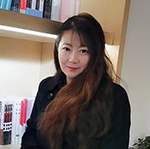 |
郭靜娜(1980.9——)內蒙古集寧市人,文博副研究員,博士,碩士導師,現工作於雲岡研究院 任歷史與民族融合研究中心科研辦主任。2015年畢業於蘭州大學歷史文化學院考古系,獲碩士學位,師從杜斗城先生。2021年畢業於山西大學歷史文化學院考古系,獲博士學位,師從李君教授。先後發表論文16篇,其中核心刊物6篇,主持省部級課題9項。撰寫《法門妙相生雲岡》、《彪炳千秋的北魏佛國——雲岡石窟》、《雲岡石窟窟頂考古報告》、《雲岡石窟窟前考古報告》、《魯班窯石窟考古報告》。論文《雲岡石窟北魏遺跡及石質文化研究—— 以第三窟為例》獲2023年度山西省社會科學優秀成果三等獎。2023年獲山西省大同市學術帶頭人稱號。
Guo Jingna (born in September 1980), from Jining City, Inner Mongolia, is an associate researcher, doctoral researcher, master’s supervisor, and currently works at Yungang Research Institute as the director of the Research Office of the Center for History and Ethnic Integration. Graduated from the Department of Archaeology, School of History and Culture, Lanzhou University in 2015 with a master’s degree, under the guidance of Mr. Du Doucheng. Graduated from the Department of Archaeology, School of History and Culture, Shanxi University in 2021 with a doctoral degree, under the guidance of Professor Li Jun. Published 16 papers, including 6 in core journals, and led 9 provincial and ministerial level projects. Write “The Mysterious Life of the Dharma Gate in Yungang”, “The Splendid Northern Wei Buddhist Kingdom – Yungang Grottoes”, “Archaeological Report on the Top of Yungang Grottoes”, “Archaeological Report on the Front of Yungang Grottoes”, and “Archaeological Report on the Luban Kiln Grottoes”. The paper “Research on the Northern Wei Dynasty Relics and Stone Culture of Yungang Grottoes – Taking the Third Grottoes as an Example” won the third prize of Excellent Social Science Achievements in Shanxi Province in 2023. In 2023, awarded the title of academic leader in Datong City, Shanxi Province. |
| 7 | HAO Chunwen, Capital Normal University 郝春文, 首都師範大學 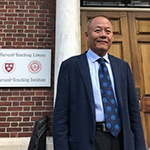 |
郝春文,首都師範大學燕京人文講席教授,中國敦煌吐魯番學會名譽會長,兼任《敦煌吐魯番研究》《敦煌學國際聯絡委員會通訊》主編,曾任耶魯大學、台灣中正大客座教授,普林斯頓大學、香港中文大學、英國國家圖書館、普林斯頓高等研究院客座研究員,著有《唐後期五代宋初敦煌僧尼的社會生活》《中古時期社邑研究》《敦煌社邑文書輯校》(合著)、《當代中國敦煌學研究(1949-2019)》(合著)、《英藏敦煌社會歷史文獻釋錄》(1-19卷)(合著)等。
Hao Chunwen 郝春文 is a Yanshan 燕山 Distinguished Professor of the School of History at Capital Normal University, also serving as the head of the university’s Institute of Historical Studies. His main areas of research are Dunhuang documents, Buddhism in China, and Chinese history, especially from the third to thirteenth century. In the past few decades, he has published several monographs on various related topics, which include Zhonggu shiqi sheyi yanjiu 中古時期社邑研究 [The Study of Confraternities in Medieval China], Tang houqi Wudai Song chu Dunhuang sengni de shehui shenghuo 唐後期五代宋初敦煌僧尼的社會生活 [The Social Life of Buddhist Monks and Nuns in Dunhuang during the Late Tang, Five Dynasties, and the Early Song], Shishi xiejing: Dunhuang yishu 石室寫經——敦煌遺書 [Scriptural Manuscripts in Stone Chambers: Dunhuang Documents], Dunhuang de lishi he wenhua 敦煌的歷史和文化 [The History and Culture of Dunhuang] (co-author), and Dunhuang sheyi wenshu jijiao 敦煌社邑文書輯校 [A Critical Collection of Documents concerning Confraternities from Dunhuang] (co-author). In addition, he was the chief editor of Vols. 12–14 in a multi-volume collection of Dunhuang manuscripts which are preserved in the United Kingdom and have published a host of articles. His current primary work-in-progress is an investigation of Dunhuang documents kept in the U.K., with the goal of collecting and studying the data related to social history. This is one of the major research projects sponsored by the National Social Science Fund of China. The outcome of this project will be a thirty-volume series Ying cang Dunhuang shehui lishi wenxian shilu 英藏敦煌社會歷史文獻釋錄 [Annotated Transcription of the Dunhuang Literature concerning Social History Preserved in the U.K.], of which fifteen volumes have already been published. He has served in a wide range of institutions. These posts include President of the Institute of Dunhuang and Turfan Studies of China, Chief Editor of Dunhuang xue guoji lianluo weiyuanhui tongxun 敦煌學國際聯絡委員會通訊 [Newsletter of International Liaison Committee for Dunhuang Studies], chief editor of Dunhuang Tulufan yanjiu 敦煌吐鲁番研究 [Studies on Dunhuang and Turfan], and editorial member of Zhongguo shi yanjiu 中國史研究 [Journal of Chinese Historical Studies]. |
| 8 | HE Liqun, Chinese Academy of Social Sciences 何利群, 中國社會科學院 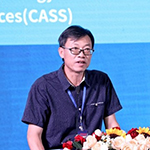 |
何利群,海德堡大學哲學博士,中國社會科學院考古研究所研究員,石窟寺考古研究室副主任(主持工作),鄴城考古隊負責人。中國社會科學院大學研究生導師,創新工程首席研究員,中國考古學會宗教考古專業委員會秘書長。長期負責鄴城遺址考古發掘工作,先後參與和主持鄴南城趙彭城東魏北齊佛教寺院、南水北調北朝墓群、南營十六國窯址、曹村北朝窯址、北吳莊佛教造像埋藏坑、核桃園北齊大莊嚴寺、鄴南城宮城區遺址等發掘工作。曾任美國代頓自然歷史博物館、德國海德堡大學、海德堡學術院訪問學者,日本東北學院大學、香港珠海學院客座教授。研究方向為漢唐都城考古、宗教考古及東亞藝術史,主要成果《北朝至隋唐時期佛教寺院的考古學研究》、《從北吳莊佛像埋藏坑論鄴城造像的發展階段與“鄴城模式”》、《鄴城遺址出土北魏譚副造像圖像考釋》、《東亞地區早期佛教寺院佈局及演變》、《鄴城北吳莊出土佛教造像》、“Space and Function-Buddhist State Monasteries in Early Medieval China and their Impact on East Asia”(空間與功能——中國中古國家大寺及其對東亞地區的影響)等。 |
| 9 | HE Xiaorong, Nankai University 何孝荣, 南開大學 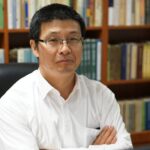 |
何孝榮,南開大學歷史學院教授、博士生導師,南開大學故宮學與明清宮廷研究中心主任,中國明史學會副會長。主要研究明清史、中國佛教史、故宮學。
出版《明代南京寺院研究》《明代北京佛教寺院修建研究》《清史十五講》《明朝佛教史論稿》《明清宮廷宗教與政治活動研究》《明代文化研究》(二人合著)《明朝宗教》(合著)《這就是故宮》(主編)《明代國家治理文獻叢刊》(主編)等,點校出版《金陵梵剎志》《黃梅老祖山志》《靈谷禪林志》《嘉慶新安縣誌》《典籍•金陵大報恩寺》(三種)等。 He Xiaorong is a professor of School of History, Nankai University in Tianjin,China. He is the director of the Center for the Study of the Imperial Palace and the Ming and Qing Court of Nankai University, and vice president of the Ming History Society of China. His research focuses on history of Ming and Qing Dynasties, Chinese Buddhism, and the Imperial Palace. He has published numerous books, including Mingdai Nanjing siyuan yanjiu明代南京寺院研究 ( Research on Temples in Nanjing in the Ming Dynasty);Mingdai Beijing fojiao siyuan xiujian yanjiu 明代北京佛教寺院修建研究 (Research on the Construction of Buddhist Temples in Beijing in the Ming Dynasty), Qingshi shiwu jiang清史十五讲 (Fifteen Lectures on the History of Qing Dynasty 1644-1840), Mingchao fojiao shi lungao 明朝佛教史论稿(A Preliminary Study on the Buddhist History in Ming Dynasty), Ming Qing gongting zongjiao yu zhengzhi huodong yanjiu明清宫廷宗教与政治活动研究 (Religious and Political Activities in the Imperial Court of Ming and Qing dynasties), etc. |
| 10 | Chelsea HEMMINGS, Seoul National University |
Chelsea Hemmings received her undergraduate and her master’s degree with the Department of Religions and Cultures of Concordia University in Montreal, Canada, with a focus on Judaism and Buddhism respectively. She is a currently pursuing a PhD in the Religious Studies Department of Seoul National University, with a focus on Korean Buddhism. Her areas of interest include material culture, religious exchange and interaction, gender, death and dying and spirit possession. |
| 11 | HOU Haoran, Zhejiang University 侯浩然, 浙江大學  |
Hou Haoran 侯浩然 holds the position of ZJU 100 Young Professor of School of History at Zhejiang University. His received his PhD from the Institute for Indology and Central Asian Studies at Leipzig University, Germany. During his doctoral studies, he worked as a research assistant at the CERES of the University of Bochum, Germany. Before joining Zhejiang University, he spent two years as a post-doctoral researcher in the Shui Mu Scholars Programme (水木學者) at the School of Humanities, Tsinghua University. His academic interests focus on Tibetan hagiographical and historical writings and on the Chinese, Tibetan and Tangut Tantric texts excavated at the site of Kharakhoto.
侯浩然,浙江大學歷史學院“新百人計划”研究員。博士畢業於德國萊比錫大學印度與中亞研究所。曾在德國波鴻大學宗教研究中心擔任助理研究員、在清華大學人文學院從事“水木學者”博士後研究工作。學術興趣為西藏的歷史文獻、藏文高僧傳記、黑水城出土的漢藏西夏多語種佛教文獻研究。 |
| 12 | HUANG Huaxin, Zhejiang University 黃華新, 浙江大學 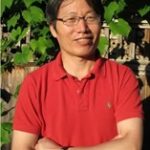 |
黃華新,浙江大學人文學部主任、教授、博士生導師,浙江大學亞洲文明研究院執行院長,浙江大學哲學社會科學國家創新基地主任,國家教育部教學指導委員會委員,國家社科基金重大項目首席專家,國家“萬人計劃”教學名師,獲全國優秀教師、浙江省傑出教師和國家教育部新世紀優秀人才稱號,享受國務院政府特殊津貼專家。 |
| 13 | HUA Tingting, Zhejiang University 華婷婷, 浙江大學 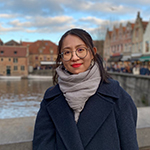 |
華婷婷,浙江大學歷史學院博士後,浙江大學哲學學院中國哲學專業博士,國家留學基金委資助浙江大學-萊頓大學聯合培養博士生。研究方向為漢藏譯中觀哲學文獻,佛典漢譯史等。博士論文為《漢藏譯<般若燈論>研究:以<觀行品><觀有無品>為例》,論文將藏譯《般若燈論》《般若燈論廣注》的《觀行品》《觀有無品》進行現代語譯之後,關注漢藏譯文異同,此外還關注中觀哲學與阿毘達磨哲學在論證方式及“自性”或“無自性”學說上的交涉。 |
| 14 | JIANG Jing, Zhejiang University of Commerce and Industry 江静, 浙江工商大學  |
江靜,女,浙江大學古典文獻學博士,浙江工商大學東方語言與哲學學院院長、教授、博士生導師;中國日本史學會副會長,浙江省中日關係史學會會長;日本早稻田大學特約研究員,日本千葉大學客座教授、韓國東國大學東亞海洋文明與宗教文化研究所客座研究員等。主要研究領域:中日佛教交流史、日本文化等。曾主持完成教育部、文化部項目各1項、省社科規劃項目3項等,正在主持“古代中日佛教外交研究”、“佛教與古代東亞文化圈的建構”、“浙江宋韻文化海外遺存指南”等國家重點及省部級重大重點項目。出版的主要著作有《赴日宋僧無學祖元研究》《日藏宋元禪僧墨跡選編》等6部。在《浙江大學學報(人文社科版)》《浙江社會科學》《文獻》《日語學習與研究》等雜誌上發表論文50余篇。
Dr. Jiang Jing is the Dean of the School of Oriental Languages and Philosophy, Zhejiang Gongshang University. She received her Ph.D. degree in Classical Literature from Zhejiang University in 2009 and she is Professor and Doctoral Supervisor of Sino-Japanese cultural exchanges. She has served as Vice President of the National Society of Sino-Japanese History, President of the Provincial Society for the History of Sino-Japanese Relations in Zhejiang. In addition, she has extensive visiting experience in the Waseda University, Chiba University in Japan, and she served as a visiting research fellow at the Institute of East Asian Marine Civilization and Religious Culture at the Dongguk University in South Korea as well. In her research and teaching, Dr.Jiang focuses on the History of Sino-Japanese Buddhist exchanges, Japanese culture, etc. She has led the completion of one research project each for the Ministry of Education and the Ministry of Culture, and three social science projects of Zhejiang Province. Dr.Jiang is currently leading several national and provincial research projects, such as “Buddhist Diplomacy between Ancient China and Japan”, “Buddhism and the Construction of Ancient East Asian Cultural Circle”, and “A Guide to Overseas Relics of Zhejiang Songyun(宋韻) Culture”. Dr.Jiang is the author of six books, including A Study on Wuxue Zuyuan Monk of the Song Dynasty in Japan and Selected Collection of Ink Writings of Zen Monks of the Song and Yuan Dynasties Collected in Japan, etc. She has published more than 50 papers in different journals, such as Journal of Zhejiang University (Humanities and Social Sciences Edition), Journal of Zhejiang Social Sciences, literature and Japanese Language Learning and Research. |
| 15 | John JORGENSEN, Independent Scholar |
John Jorgensen is currently an independent scholar; his doctoral dissertation (Australian National University 1990) was on Chan and poetics. He taught Japanese Studies at Griffith University for twenty years. He has published on East Asian Buddhism and on Korean new religions. Chief publications include Inventing Hui-neng, the Sixth Patriarch: Hagiography and Biography in Early Ch’an (2005) and The Foresight of Dark Knowing: Chŏng Kam Nok and Insurrectionary Prognostication in Pre-modern Korea (2018); three volumes of translation in the Collected Works of Korean Buddhism series [vol. 3, Hyujeong: Selected Works; vol. 7-2, Gongan Collections II; vol. 8, Seon Dialogues] (2012), A Handbook of Korean Zen Practice: A Mirror on the Sŏn School of Buddhism (Sŏn’ga kwigam) (2015), and The Gyeongheo Collection:Prose and Poetry by the Restorer of Korean Seon (2016). Recent research has been on Chan and Zhu Xi, the developments of Buddhism in early Republican China, Yogacara in the late Ming, language and the diffusion of Chan, varieties of Sinitic used in Korea, and participation in a team translation of the Dasheng qixin lun into English (Treatise on Awakening Mahāyāna Faith, New York: Oxford University Press, 2019).
現為獨立學者,撰有關於禪與詩學方面的博士論文(澳大利亞國立大學,1990 年)。曾在格里菲斯大學講授日本研究20年。他發表過關於東亞佛教、韓國新宗教等領域的著作。主要成果包括:《製造六祖惠能:早期禪宗祖師傳與僧傳》(Inventing Hui-neng, the Sixth Patriarch: Hagiography and Biography in Early Ch’an, 2005)。《先見之黑:〈鄭鑑錄〉與朝鮮前現代的起義之讖》(The Foresight of Dark Knowing: Chŏng Kam Nok and Insurrectionary Prognostication in Pre-modern Korea, 2018)。譯著有《韓國佛教大成》(Collected Works of Korean Buddhism, 2012)譯叢中的三卷(卷三《休靜選集》[Hyujeong: Selected Works];卷七之二,《公案集II》[Gongan Collections II];卷八《禪語錄》[Seon dialogies]),《朝鮮禪修指南:襌家龜鑑》(A Handbook of Korean Zen Practice: A Mirror on the Sŏn School of Buddhism [Sŏn’ga kwigam], 2015),以及《鏡虛集:朝鮮禪宗復興者的詩文》(The Gyeongheo Collection: Prose and Poetry by the Restorer of Korean Seon,2016)。近來研究領域則涉及禪宗與朱熹,明末唯識學,民國初年佛教之發達,語言與禪宗之流布,以及朝鮮/韓國所用之各種漢語言,並參與了英譯本《大乘起信論》(Treatise on Awakening Mahāyāna Faith, New York: Oxford University Press, 2019)的編譯。 |
| 16 | Laura LETTERE, Rome University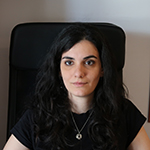 |
Laura Lettere graduated in Oriental Languages and Civilizations (Sanskrit and Chinese) from La Sapienza University and studied as an Erasmus student at the EPHE in Paris. She holds a Ph.D. in Civilizations and Cultures of Asia and Africa from La Sapienza University, with a joint supervision at the Center for Buddhist Studies at Ghent University and a fellowship with Fudan University in Shanghai. She was a lecturer in Chinese Literature at the University of Bologna (2018). In 2020, she received the Post-doctoral Fellowship of the Robert H. N. Ho Family Foundation’s Buddhist Studies Program; her research project was conducted at the University of Naples L’Orientale and resulted in the publishing of the monograph Buddhist translation practices in Medieval China: The case of the Buddhacarita in 2023. Laura Lettere has published in prestigious journals such as the Journal of Chinese Religions, Rivista di studi orientali, and Studi e materiali di storia delle religioni. In 2023 she edited the first Italian translation of the Platform Sutra from Chinese. She is currently a teacher of Mandarin Chinese in Italian secondary schools, where she promotes initiatives for a better understanding of Chinese Buddhism and meditative practices among teenagers and young adults. |
| 17 | LHAMOKYI, Tibet Research Institute of Tibet University 拉毛吉, 西藏大學藏學研究所 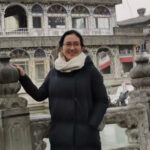 |
拉毛吉,西藏大學藏學研究所副研究員,博士,民族學(人類學)碩士生導師,西藏天文歷算協會理事,主要從事藏族天文歷算及歷史文化研究。主持項目國家社科基金西部項目「西藏的天文歷算研究」,國家社科基金一般項目「苯教天文歷算文獻整理與研究」,教育部社科基金一般項目「拉布楞寺丁克爾扎倉研究」,西藏自治區高校認文社科項目「藏族數術學在民間的實踐應用」,西藏大學培育項目提升計劃「科學哲學與科學史視野下的藏歷專題問題研究」等,出版專著《拉布楞寺堆闊爾扎倉研究》,發表與天文歷算相關的論文十餘篇。
Lhamokyi (La maoji) is an associate researcher of Center for Tibetan Studies at Tibet University, a master supervisor of Ethnology (Anthropology), and a member of Tibetan Astrological Science and Calendar Association, mainly researching on Tibetan astrological science and its history and culture. She is in charge of 7 projects of Astrological science, for example, the project of the National Social Science foundation of China “Researching on traditional Tibetan astrological science”, “Collect and Collate the Bon Tibetan Astrological Science Literatures and Manuscripts”, and the project of The Social Science Foundation of the Ministry of Education “Research on Labrangdus ’khorgrwatshang”. She has published the book Pure land of dus ’khor: researching on Labrangdus ’khorgrwatshang, and has published more than 10 papers related to astrological science. |
| 18 | LI Jianxin, Chinese Academy of Social Sciences 李建欣, 中國社會科學院 |
|
| 19 | LI Ling, Sichuan University 李翎, 四川大學 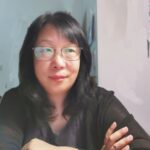 |
李翎,遼寧大連人,四川大學教授。中央美術學院畢業,獲博士學位。以色列國家高級研究院合作教授、印度尼赫魯大學訪問學者。多次踏察印度、巴基斯坦、斯里蘭卡以及東南亞古代佛教遺跡。主要研究方向為視覺佛教,近年研究興趣為印度早期佛教圖像與考古。已出版18部著作(含合著、譯著)、發表119篇論文,完成2項國家出版基金資助項目。
Li Ling, a native of Dalian, Liaoning province, professor at Sichuan University, graduated from the Central Academy of Fine Arts (CAFA), had been a Co-professor at National Institute for Advanced Studies, Israel, Visiting Scholar of Jawaharlal Nehru University, India two times. Numerous visits to ancient Buddhist ruins in India, Pakistan, Sri Lanka and Southeast Asia. Her main research interest is visual Buddhism, and recent research interest is the image and archaeology of early Buddhism in India. She has published 18 works (including co-authored and translated), published 119 papers, and completed 2 projects funded by the National Publishing Fund. |
| 20 | LI Xiang, Chinese Academy of Social Sciences 李想, 中國社會科學院  |
李想,中國社會科學院世界宗教研究所助理研究員,《世界宗教研究》編輯,中國宗教學會理事,中國人民大學哲學博士,比利時根特大學東方語言與文化博士。
Li Xiang is an editor of Studies in World Religions and assistant researcher at the Institute of World Religion, Chinese Academy of Social Sciences. He obtained his PhD in 2018 from both Renmin University of China and Ghent University. He is a board member of Chinese Religious Studies Association, specializing on Buddhist Philosophy and Chinese Buddhist Studies. |
| 21 | LI Xuan, Sichuan University 勵軒, 四川大學  |
勵軒,四川大學歷史文化學院教授。中國人民大學歷史學博士學位,印第安那大學布隆明頓分校中亞歐亞研究博士學位。從事中國民族史、民族與民族主義研究。
Xuan Li is a Professor in the School of History and Culture at Sichuan University. He received his first PhD degree in history from the Renmin University in China, and second PhD degree in Central Eurasian Studies from Indiana University Bloomington. He has worked on ethnic history in China, nation and nationalism. |
| 22 | LIU Yi, Capital Normal University 劉屹, 首都師範大學 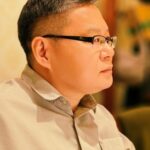 |
劉屹,2000年在首都師範大學歷史系(歷史學院)獲得博士學位,並開始留校任教。2007年,獲批教育部“新世紀優秀人才”。2023年獲批中宣部哲學社會科學領軍人才。現任首都師範大學歷史學院教授,院長,中國敦煌吐魯番學會副會長。專業領域為敦煌學、中古宗教史。已在國內外各種專業學術刊物、論文集上發表專題論文、研究書評、譯稿等160多篇,出版專著和論文集8部:《敬天與崇道——中古經教道教形成的思想史背景》(2005)、《經典與歷史——敦煌道經研究論集》(2011)、《神格與地域——漢唐間道教信仰世界研究》(2011)、《敦煌道經與中古道教》(2013)、《漢唐道教的歷史與文獻研究——劉屹自選集》(2015)、《中國道教史研究入門》(2017)、《六朝道教古靈寶經的歷史學研究》(2018)、《龍沙論道集》(2020)。其中,《敬天與崇道》獲得第九屆北京市哲學社會科學優秀成果二等獎(2006)。《六朝道教古靈寶經的歷史學研究》入選《國家哲學社會科學成果文庫》(2018)並獲第十五屆北京市哲學社會科學優秀成果一等獎(2019)。先後承擔並完成2項國家社科基金一般項目,1項教育部人文社會科學面上專案,在研1項國家社科基金重點專案。
硏究特點:注重以歷史學分析史料的方法來研討宗教典籍的形成與思想脈絡。1996—2016年的主要研究領域是道教歷史與文獻。在道教歷史方面,對早期道教的“五斗米道—天師道”一線單傳的歷史模式提出質疑。在道教文獻方面,對《太平經》《老子想爾注》《老子化胡經》《老子變化經》《升玄內教經》《太上妙法本相經》等道書和六朝的“古靈寶經”有專門的研究。2017年以來,轉向中古佛教研究,目前對西域佛教史、中印佛教陸路交通路線、佛教初傳中國時期的歷史與藝術、印度佛教的“法滅”預言與東亞佛教的“末法思想”問題比較關注。 Liu Yi, obtained his Ph.D. from the Department of History at Capital Normal University in 2000, where he subsequently took up a teaching position. Currently, he is a professor, and dean at the School of History of Capital Normal University, as well as the vice president of the China Dunhuang and Turfan Society. His areas of expertise are Dunhuang studies and the religious history of medieval China. He has published over 160 academic papers, research book reviews, and translations in various domestic and international journals and anthologies. He has authored and edited eight monographs and collections of essays: “Reverence for Heaven and the Exaltation of the Dao: The Intellectual History Background of the Formation of Medieval Confucian and Daoist Thoughts” (2005), “Classics and History: A Collection of Studies on Daoist Scriptures from Dunhuang” (2011), “Divinity and Regionality: Studies on the Daoist Belief World between the Han and Tang Dynasties” (2011), “Daoist Scriptures of Dunhuang and Medieval Daoism” (2013), “Historical and Documentary Studies of Han and Tang Daoism: Selected Works of Liu Yi” (2015), “Introduction to the Study of Chinese Daoism History” (2017), “Historical Studies on the Lingbao Scriptures of the Six Dynasties” (2018), and “Longsha Lun Dao Ji” (2020). His research is characterized by the use of historical analysis to study the formation and ideological contexts of religious scriptures. From 1996 to 2016, his primary research focus was on Daoist history and scriptures. In terms of Daoist history, he has critically examined the historical model of the “Five Pecks of Rice Dao to Celestial Master Dao” lineage. Regarding Daoist scriptures, he has conducted specialized research on texts such as the “Taiping Jing,” “Laozi Xiang Er Zhu,” “Laozi Hua Hu Jing,” “Laozi Bian Hua Jing,” “Sheng Xuan Nei Jiao Jing,” “Tai Shang Miao Fa Ben Xiang Jing,” and the “Lingbao Scriptures” of the Six Dynasties. Since 2017, he has shifted his focus to the study of medieval Buddhism, with particular interest in the history of Buddhism in the Western Regions, overland Buddhist trade routes between China and India, the history and art of Buddhism’s initial transmission to China, and comparative studies on Indian Buddhist “Dharma decline” prophecies and East Asian Buddhist “end of the Dharma” concepts. |
| 23 | LIU Yimin, Sichuan University 劉益民, 四川大學 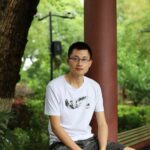 |
Liu Yimin is currently an assistant researcher at the School of History and Culture, Sichuan University. He has visited and studied in Oxford University, Tsinghua University, Dharma Drum Institute of Liberal Arts, Henan University and other universities. He has published several papers in Religious Studies(宗教学研究), Historical Review(史林) and other journals. He mainly focuses on the social history of Buddhism and funeral rites in the Middle Ages.
刘益民,现为四川大学历史文化学院助理研究员。曾到牛津大学、清华大学、法鼓文理学院、河南大学等高校交流学习。在《宗教学研究》《史林》等刊物发表论文数篇。主要关注中古时期的佛教社会史、丧葬礼仪。 |
| 24 | LÜ Bo, Wuhan University 呂博, 武漢大學 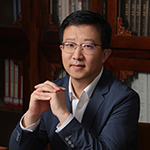 |
呂博,男,1987年1月生,陝西延安人,武漢大學歷史學院暨中國三至九世紀研究所教授,博士生導師。2014年畢業於武漢大學歷史學院,獲歷史學博士學位。2012年至2013年在日本京都大學人間環境學研究科訪學。2014年至2016年任武漢大學歷史學院考古系博士後。2019年4月25日-2020年4月25日擔任東京大學人文社會系研究科外國人研究員。主要研究方向為隋唐禮儀、宗教實踐與政治變遷、吐魯番文書等。近年發表《明堂建設與武周的皇帝像——從聖母神皇到轉輪王》《武後不死:升仙太子碑成立前後以及武週末年的政治、宗教轉向》《<七錄序>與阮孝緒的知識、思想世界》等論文多篇。 |
| 25 | LUO Rufei, Nanjing University 駱如菲, 南京大學 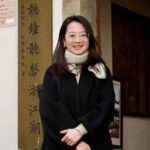 |
駱如菲,現為南京大學藝術學院特任副研究員,曾任浙江大學歷史學院中國史博士後,博士畢業於浙江大學藝術與考古學院藝術學理論專業,並曾於美國芝加哥大學藝術史系訪學。研究方向為漢藏佛教美術史、絲綢之路藝術史,現主持國家社科基金青年計畫《絲綢之路多民族視野下的10至13世紀西藏西部石窟寺遺存研究》(23CZS024),在《敦煌研究》《藝術史研究》《世界宗教文化》等期刊發表學術論文,合作編著《藏族美術整合·雕塑藝術·江南卷》。
LUO Rufei, currently a special associate researcher at the School of Art at Nanjing University, was formerly a postdoctoral fellow in Chinese history at the School of History, Zhejiang University. She earned her Ph.D. in Art Theory from the School of Art and Archaeology, Zhejiang University, and has also conducted research as a visiting student at the Department of Art History, University of Chicago. Her research interests include the art history of Han-Xizang Buddhism and the art history of the Silk Road. She is currently leading a Youth Project funded by the National Social Science Fund of China titled “Research on the Remains in Grotto Temples of Western Xizang from the 10th to 13th Centuries in the Multi-ethnic Perspective of the Silk Road” (23CZS024). She has published academic papers in journals such as Dunhuang Research, The Study of Art History, and The World Religious Cultures. Additionally, she co-edited the compilation Collections of Tibetan Fine Arts: Sculpture Art-Jiangnan Volume in 2019. |
| 26 | MIAO Lihui, Kucha Research Institute 苗利輝, 龟兹研究院  |
苗利輝 歷史學博士,新疆克孜爾石窟研究所文博研究館員,副所長。中央美術學院“西部之光”訪問學者。主要從事佛教考古以及文化研究,多次參加新疆地區考古遺址的考古發掘工作。主持或參加7項國家及省部級課題。編著《圖像與意義:龜茲石窟佛像畫研究》《新疆石窟藝術概論》等6部著作,參與《龜茲石窟與佛教歷史文化》等6部著作的編寫。先後在《敦煌研究》《西域研究》《新疆師範大學學報 哲社版》《敦煌學輯刊》等學術刊物發表論文60余篇。
Dr. Miao Lihui, Ph.D. in history, is a research librarian and deputy director of Xinjiang Kizil Grottoes Research Institute. He is also a visiting scholar of the “Light of the West” program of the Central Academy of Fine Arts. He is mainly engaged in Buddhist archaeology and cultural research, and has participated in several archaeological excavations at archaeological sites in Xinjiang. He has presided over or participated in seven national and provincial projects. He has edited six books, including Image and Meaning: A Study of the Grottoes of Guzi, An Introduction to Xinjiang Cave Art, and participated in the preparation of six books, including The Grottoes of Guzi and the History and Culture of Buddhism. He has published more than 60 papers in academic journals such as Dunhuang Studies, Western Region Studies, Journal of Xinjiang Normal University, Journal of Philosophy and Society, and Dunhuang Studies Series. |
| 27 | Kwon Ki-wan/Ven. MUNKWANG, Dongguk University 文光, 東國大學 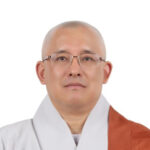 |
Kwon Ki-wan (權奇完), dharma name Munkwang (文光) , entered monastic life at Haein Temple (海印寺) Wondang-am (願堂庵) in 2001, received precepts for novices (沙彌戒) at Tongdo Temple (通度寺) in 2002, and bhikṣu precepts (比丘戒) at Jikji Temple (直指寺) in 2008. He earned his bachelor’s degree in Seon Studies (禪學科) from Dongguk University, and bachelor’s and master’s degrees in Chinese Language and Literature from Yonsei University. Also obtained a Ph.D. in Philosophy from the Academy of Korean Studies. He is currently serving as an ācārya (阿闍梨) in the Jogye Order’s education department and as a HK (Humanity Korea) research professor at the Institute of Buddhist Culture, Dongguk University. |
| 28 | NIE Jing, Wuhan University 聶靖, 武漢大學 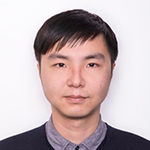 |
武漢大學歷史學博士,考古學博士後。博士論文《地域視角下的契丹遼朝佛教研究》從文化互動的角度對遼代佛教進行了長時段、跨地域的考察,試圖展現佛教傳播背後漢-契丹族群互動、農牧文化的碰撞與交融的歷史場景。最近的研究方向爲遼金史與中古宗教社會史。
Nie Jing is a postdoctoral fellow of Archaeology at Wuhan University, where he recently received his Ph.D. in Chinese History. His doctoral dissertation, “Buddhism under the Kitan Liao: A Regional Perspective” conducts a long-term, cross-regional examination of Buddhism in Liao Dynasty from the standpoint of cultural interaction. It aims to illustrate historical scenes of interaction between the Han and Kitan ethnic groups, as well as the cultural collision and integration between agrarian and pastoral society as Buddhism dispersed. His recent research focuses on the history of Liao and Jin Dynasties and social history of religion in medieval China. |
| 29 | NIU Weixing, University of Science and Technology of China 鈕衛星, 中國科學技術大學  |
鈕衛星,現任中國科學技術大學科技史與科技考古系教授、執行系主任。主要從事天文學史、特別是中古時期中西天文學的交流與比較研究,是國家社科基金重大項目“漢唐時期沿絲路傳播的天文學研究”首席專家,著有《西望梵天――漢譯佛經中的天文學源流》、《唐代域外天文學》、《佛道二藏天文曆法資料整理與研究》等。
NIU Weixing, currently is a professor and executive director in the Department of the History of Science and Scientific Archaeology of University of Science and Technology of China, mainly engaged in research on the history of astronomy, especially on the exchange and comparison of Chinese and Western astronomy. He is the Chief Expert of the Major Projects of the National Social Science Foundation titled ‘On the Diffusion of Astronomy along the Silk Road during the Han and Tang Dynasties’. He is also the author of Gazing toward the Indian Heavens: On the Origin and Diffusion of Astronomy in the Chinese Translated Sutras (《西望梵天――漢譯佛經中的天文學源流》), Extraterritorial Astronomy of the Tang Dynasty(《唐代域外天文學》), and Compilation and Research on Astronomical and Calendrical Materials in the Buddhist Sutras and Taoist Scriptures(《佛道二藏天文曆法資料整理與研究》), etc. |
| 30 | PAN Xiaoxi, Zhejiang University 潘小溪, 浙江大學 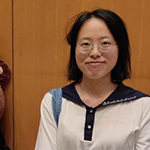 |
潘小溪,女,中國人民大學哲學博士,浙江大學歷史學院博士後。主要研究方向為早期漢譯佛經,魏晉南北朝佛教史,犍陀羅佛教。在《世界宗教研究》、《佛學研究》等發表多篇論文。
Xiaoxi Pan, PhD of religions study, graduated from Renmin University of China (2020), and was a Post-Doctoral Fellow in Zhejiang University (2022-2024). She went to Oxford University as a recognised student for one year (2017-2018), to DILA as visiting scholar for half a year (2019.5-2019.10), and to Waseda University as overseas research fellow for one year (2023.4-2024.4). Her main focus is on the early Chinese Buddhism translations, the Buddhism history of Wei and Jin Dynasties, Northern and Southern Dynasties, and Gandhāri Buddhism. She has published several articles on the Studies in World Religions and the Buddhist Studies. |
| 31 | QIU Gaoxing, Jiliang University 邱高興, 計量大學 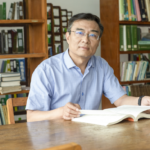 |
邱高興,哲學博士,曾先後任吉林大學哲學系講師、副教授、教授、博導,現任中國計量大學人文與外語學院院長、教授,浙江民族宗教研究会副会长、杭州宗教研究会副会长、中国宗教学会理事、中國哲學史學會理事。主要從事中國佛教史、佛教哲學與思想、華嚴宗等研究。主要學術成果有《李通玄佛學思想述評》(佛光文化事業有限公司出版,2001),《禪源諸詮集都序》校釋(中州古籍出版社,2018),《洛陽伽藍記》校釋(中州古籍出版社,2022)。主編《佛教與江浙文化》(第一、二、三輯)、《唐詩之路研究》第一輯(中華書局,2022)。 |
| 32 | Bruce RUSK, University of British Columbia 阮思德, 加拿大英屬哥倫比亞大學  |
Bruce Rusk is an Associate Professor in the Department of Asian Studies. His main areas of research and teaching are the cultural history of China, especially the Ming (1368–1644) through early Qing (1644–1911) dynasties. He has worked on the history of textual studies, literary culture, writing systems, and connoisseurship. His first monograph, Critics and Commentators: The Book of Poems as Classic and Literature, was published by the Harvard University Asia Center in 2012. It studies the interactions between literary criticism and classical studies in imperial China, showing how the two fields borrowed from each other while remaining distinct in status and approach.
His current research, part of a larger interest in how ideas of authenticity and deception were negotiated in late imperial China, concerns practices of authentication surrounding material culture. He is preparing a study of one especially problematic category of artifact, so-called “Xuande incense burners,” bronze vessels supposedly cast in palace workshops in early fifteenth century but in fact invented over a hundred years later and “provenanced” by texts forged in the eighteenth century. He is also investigating Ming and Qing techniques for assaying (and faking) silver ingots, the most important form of money during that period. |
| 33 | SHI Qing, Zhejiang University 石青, 浙江大學 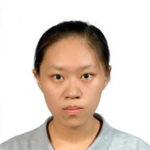 |
石青,历史学博士,现于浙江大学历史学院从事博士后研究工作。主要研究方向为魏晋南北朝史、东晋南朝学术史、思想史,目前关心佛教知识在中古中国的传播与接受问题。博士论文《东晋南朝佛教学术知识的传承及其整合——以〈出三藏记集〉为中心》,关注中古早期佛典目录、文集的编辑思路,经典流通与经书收藏,佛典目录体例、佛典解释方法与传统儒家学术方法的异同等。发表论文《道安佛籍整理的困境与方法——兼谈道安学术方法对僧祐的若干影响》《茅山降神与十大洞天说之起源——以〈茅君内传〉为线索》等。
Shi Qing is a Postdoctoral Fellow at the School of History at Zhejiang University. She received her Ph.D. from Wuhan University with a dissertation titled “A Research on the Inheritance and Integration of Buddhist Knowledge in the Eastern Jin and Southern Dynasties: Centering on Chu Sanzang Ji Ji 出三藏记集.” Her dissertation primarily explores the organization and integration of Buddhist knowledge into the traditional Chinese knowledge system. It examines how scholars, influenced by traditional academic methods, absorbed Buddhist knowledge and how the interaction between foreign and local cultures influenced the evolution of Buddhism in China. |
| 34 | SUN Yinggang, Zhejiang University 孫英剛, 浙江大學 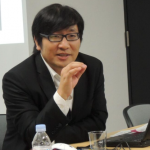 |
Studied at Beijing University (1996-2003) and Princeton University (2003-2009, Ph.D. from Department of East Asian Studies); Associate Professor of Medieval Chinese History at Fudan University (Shanghai, 2009-2016); Currently Professor of Medieval Chinese History (2016-), Dean of School of History (2021-) at Zhejiang University, Hangzhou; Visiting scholar to Tokyo University (2010) and Yale University (2015-2016).
Research Interests include medieval history (Northern and Southern Dynasties, Tang Dynasty) and History of Buddhism (especially Buddhism and Medieval Monarchship as well as Buddhism and the Silk Road). Currently work on how Gandharan Buddhism influenced Medieval Chinese History. 孫英剛,先後就讀於北京大學(本科、碩士)和普林斯頓大學(Princeton University,碩士、博士),獲普林斯頓大學哲學博士學位(Ph.D.)。先後任教於復旦大學、浙江大學。現為浙江大學長聘教授、歷史學院常務副院長(主持全面工作)、浙江大學佛教文明研究中心主任。中國魏晉南北朝史學會副會長、中國唐史學會理事、敦煌吐魯番學會理事。客座職務包括耶魯大學東亞研究客座副教授和研究員(Visiting Associate Professor and Research Fellow in East Asian Studies,2015年9月—2016年3月)、東京大學東洋文化研究所訪問研究員(2012年10月—12月)等、日本中央大學客座教授(2017年12月)日本國際佛教學大學院大學2014年度客員研究員等。 |
| 35 | Laurent VAN CUTSEM, Ghent University 方洛杭, 根特大學  |
Laurent Van Cutsem is Postdoctoral Fellow at Ghent University (Centre for Buddhist Studies) and editor for the Database of Medieval Chinese Texts. He received his Ph.D. from Ghent University with a dissertation on the textual history of the Zutang ji 祖堂集 and its relationship to other Chan texts. His main research interests include premodern Chan/Zen literature and Chan manuscripts from Dunhuang. He is working on a monograph on Chan hagiographical literature in Tang-Song (ca. 750–1050) transition China that investigates the processes that guided the compilation of early Chan anthologies and the formation of a distinct Chan mode of hagiography. In the framework of his research, he has integrated approaches from Digital Humanities, producing TEI editions of Chan manuscripts from Dunhuang (e.g., S.1635) and explored how Historical Social Network Analysis can help us better understand the production of Chan genealogies. His most recent research project focuses on the quotations of the Baolin zhuan 寶林傳 retrieved from the 14th-century Keitoku dentō shōroku 景德傳燈鈔錄.
方洛杭,根特大學佛教研究中心博士後、中古寫本資料庫編輯,年畢業於根特大學東方語言文化系,博士論文為「《祖堂集》研究:成書過程、譜系及互文性」。學術興趣專注於晚唐至北宋早期禪宗文獻及敦煌禪宗寫本研究,主要使用的研究方法包括語文學、版本研究及數字人文科學(例如版本、社會網絡分析)。發表「《泉州千佛新著諸祖師頌》(Or.8210/S.1635):手稿、文本歷史及譜係研究」(《通報》2023年第109期)等三篇論文。 |
| 36 | Brian VICTORIA, Oxford Centre for Buddhist Studies |
Brian Victoria is a native of Omaha, Nebraska and a 1961 graduate of Nebraska Wesleyan University in Lincoln, Nebraska. He holds a M.A. in Buddhist Studies from Sōtō Zen sect-affiliated Komazawa University in Tokyo, and a Ph.D. from the Department of Religious Studies at Temple University.
In reverse chronological order, Brian’s major writings include Zen Terror in Prewar Japan: Portrait of an Assassin (Rowman & Littlefield, 2020), a 2nd, enlarged edition of Zen At War (Rowman & Littlefield, 2006); Zen War Stories (RoutledgeCurzon, 2003); an autobiographical work in Japanese entitled Gaijin de ari, Zen bozu de ari (As a Foreigner, As a Zen Priest), published by San-ichi Shobo in 1971; Zen Master Dōgen, coauthored with Prof. Yokoi Yūhō of Aichi-gakuin University (Weatherhill, 1976); and a translation of The Zen Life by Sato Koji (Weatherhill, 1972). In addition, Brian has published numerous journal articles, focusing on the historical relationship of not only Buddhism but religion in general to violence and warfare. Many of Brian’s articles are available at the website of The Asia-Pacific Journal: Japan Focus here: http://apjjf.org/site/search/level/2/author/Brian%20Victoria Additional articles may be found on The Zen Site here: http://www.thezensite.com/MainPages/critical_zen.html Among others, Brian has taught Japanese Studies at Bucknell University in the US; University of Auckland in New Zealand and the University of Adelaide in South Australia. From 2005 to 2013 Brian was a professor of Japanese Studies and director of the AEA “Japan and Its Buddhist Traditions Program” at Antioch University in Yellow Springs, OH. From 2013-2015 he was a Visiting Research Fellow at the International Research Center for Japanese Studies in Kyoto, Japan. Brian currently lives in Kyoto, Japan where he continues his research as a non-resident Senior Research Fellow of the Oxford Centre for Buddhist Studies. He is a citizen of Australia, New Zealand and the United States. He is also a fully ordained Buddhist priest in the Sōtō Zen sect. |
| 37 | WANG Dawei, Sichuan University 王大偉, 四川大學  |
王大偉,男,1984年生,2012年於四川大學獲哲學博士學位,2021年於成都中醫藥大學獲醫學博士學位,中醫學博士後。現為四川大學道教與宗教文化研究所教授。主要學術研究領域為漢傳佛教制度文化史及佛教與傳統醫學的交涉等。
WANG Dawei 王大偉, male, was born in 1984, achieving doctor degree of Philosophy (in 2012, Sichuan University) and doctor degree of Medicine (in 2021, Chengdu University of Traditional Chinese Medicine) and now serve as a professor in the Institute of Taoism and Religious Culture in the Sichuan University, whose main research areas are the cultural history of Chinese Buddhism system and the connection between Buddhism and traditional medicine. |
| 38 | WANG Jun, Yunnan Provincial Museum 王珺, 雲南省博物館  |
王珺,研究館員,目前就職於雲南省博物館。研究領域為雲南少數民族文物研究及展覽策劃,出版著作《銀輝秘語——雲南少數民族銀器》、《雲南少數民族非紙質典籍聚珍》(金石器物類、絲帛素書類二、竹木簡牘類三)等。
Jun Wang ,Professor ,works at Yunnan Provincial Museum.She made a study of research and curation of Yunnan ethnic minorities culture relics .Studies:《Art and Culture:The Research on the Silverware of Yunnan ethnic minorities》《The Non-paper Ancient Books and Records of Yunnan ethnic minorities》(Coauthor). |
| 39 | WANG Nan, Peking University 王楠, 北京大學 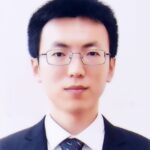 |
Wang Nan, a postdoctoral fellowship at Peking University’s Boya Postdoctoral Fellowship Program. He studied under Professor Saito Akira, a renowned professor emeritus at the University of Tokyo, during his doctoral studies. His primary research interests include Madhyamaka philosophy and Buddhist epistemology. He participated in the Bauddhakośa project of the Japanese Ministry of Education, Culture, Sports, Science and Technology(MEXT), and co-authored “The One Hundred Elements(dharma) of Yogācāra in Sthiramati’s Pañcaskandhakavibhāṣā”. He is a member of the Japanese Association of Indian and Buddhist Studies, the Institute of Eastern Culture, and the Association of Buddhist Philosophy. He has published numerous articles in journals such as Buddhist Studies and Journal of Indian and Buddhist Studies.
|
| 40 | WANG Qiyuan, Fudan University 王啟元, 復旦大學 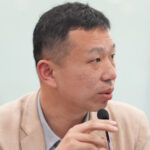 |
王启元,浙江鄞县人,复旦大学古籍所博士,宗教学博士后,现为复旦大学中华古籍保护研究院副研究员,曾任虹口区档案馆副馆长(挂职)。从事明清佛教史、佛教文献研究。两次得到国家社科基金后期项目支持,分别为“僧俗交往与晚明佛教史的重构”(18FZJ003)、“紫柏真可禅师年谱长编”(22FZJB006)。专著《晚明佛教考——从僧俗互动的视野展开》、《保釐云间:上海历史上的神祇、信仰和空间》(合著),共同编著有《佛法与方法:明清佛教及其周边》、《二十世纪中国佛教的两次复兴》等。 |
| 41 | WANG Shiyu, Zhejiang University 王詩雨, 浙江大學 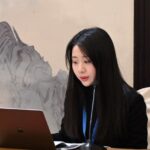 |
王詩雨,現為浙江大學歷史學院博士研究生,哈佛大學訪問學者。研究方向為犍陀羅藝術史、中國佛教藝術史、絲綢之路美術史。博士論文題為《中亞古國那竭與漢唐佛教美術研究》,該階段主要關注阿富汗哈達地區的佛教藝術與佛教思想,探究其與中國佛教史以及佛教藝術的聯繫,從而理解佛教圖像的源流、絲綢之路佛教文明元素的交流與互鑒。
Shiyu Wang is currently a doctoral candidate at the History Department of Zhejiang University, and a visiting scholar at Harvard University. Her research focuses on Gandhara art history, Chinese Buddhist art history, and the art history of the Silk Road. Her doctoral dissertation is titled Research on the Buddhist Art of the Ancient Nagarahāra and Han and Tang Dynasties Buddhist Art 中亞古國那竭與漢唐佛教美術研究.This phase mainly focuses on the Buddhist art and Buddhist thought in the Haḍḍa region of Afghanistan, exploring its relationship with the history of Chinese Buddhism and Buddhist art. The aim is to understand the origins of Buddhist imagery and the exchange and mutual influence of Buddhist cultural elements along the Silk Road. |
| 42 | Luchun WU, Zhejiang Provincial Museum 吳廬春, 浙江省博物館  |
WU Luchun is Archive Curator at Zhejiang Provincial Museum in Hangzhou and J. S. Lee Memorial Fellow at the International Dunhuang Programme (IDP), British Library (2023–2024). Her research focuses on the sūtras and dhāraṇīs carved on the Zhakou White Pagoda 閘口白塔 and the Leifeng Pagoda 雷峰塔 in Hangzhou, and seeks to deepen our understanding of the Buddhist culture in the Wuyue Kingdom 吳越國 (907–978) and its exchange with other regions and countries. At the British Library, she examines copies of the two principal translations of the Dafangguang fo huayan jing 大方廣佛華嚴經 held in the Stein collection and is preparing a descriptive catalog of these manuscripts. She is particularly interested in the textual features and the transmission of the eighty-fascicle (Tang version) Dafangguang fo huayan jing in Dunhuang and the Wuyue Kingdom.
浙江省博物館檔案管理員,目前由利榮森紀念交流計劃資助在大英圖書館國際敦煌項目(IDP)做訪問研究。其研究主要關注吳越國(907–978)時期的佛教遺存(以閘口白塔和雷峰塔為中心),旨在探索吳越國時期杭州地區的佛教發展狀況及其與周邊地區或國家的交流。在大英圖書館訪學期間主要考察《大方廣佛華嚴經》,協助完善相關卷子的目錄信息,研究項目主要關注敦煌地區八十卷《大方廣佛華嚴經》的文本細節及版本信息,並在此基礎上與吳越國佛經進行比較研究。 |
| 43 | YANG Zhifei, Xi’an International Studies University 楊志飛, 西安外國語大學 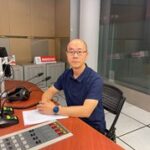 |
楊志飛,1983年生,河北邢台人。先後在新疆師範大學(2006)、蘭州大學(2010)、浙江大學(2013)獲得學士、碩士、博士學位,專業為中國古典文獻學。曾在陝西省社會科學院古籍所工作(2013.09-2018.10)。現為西安外國語大學中國語言文學學院副教授、副院長、碩士生導師。主持2016年國家社科基金青年項目「漢文佛教史學名著《佛祖歷代通載》整理與研究」、2021年國家社科基金後期資助項目「釋氏稽古略校注」等,出版專著《贊寧〈宋高僧傳〉研究》,發表《論玄奘譯場的文臣監譯》《國圖藏至正七年本〈佛祖歷代通載〉發微》等論文數篇。研究方向:漢文佛教文獻。
Yang Zhifei, born in Xingtai, Hebei Province in 1983. He received his bachelor’s, master’s, and doctoral degrees from Xinjiang Normal University (2006), Lanzhou University (2010), and Zhejiang University (2013), specializing in Chinese classical literature. He worked in the Institute of Ancient Books of Shaanxi Academy of Social Sciences (2013.09-2018.10). He is currently an associate professor, vice president and master’s supervisor of the School of Chinese Language and Literature of Xi’an International Studies University. He presided over the 2016 National Social Science Fund Youth Project “Collation and Research on the Historical Masterpiece of Chinese Buddhism “The Buddha’s Historical Commentary”, and in 2021, the National Social Science Fund Later Funding Project “Commentary on the Ancient Texts of the Buddha”, etc., published the monograph “A Study on the Biography of Song Monks”, and published several papers such as “Discussion on the Literary Officials in Xuanzang`s Translation Workshop” and “A Study on Yuan Dynasty of Fozulidaitongzai collected in NLC”. Research Interests: Chinese Buddhist Literature. |
| 44 | ZHANG Fenglei, Renmin University of China 張風雷, 中國人民大學 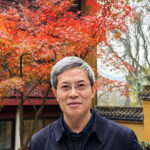 |
張風雷,先後就讀於北京大學哲學系、中國人民大學哲學系,1994年獲哲學博士學位。現任教育部人文社會科學重點研究基地中國人民大學佛教與宗教學理論研究所所長,哲學院教授、博士生導師,校學術委員會委員。 |
| 45 | ZHANG Meiqiao, Zhejiang University 張美僑, 浙江大學 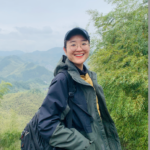 |
張美僑,浙江大學歷史學院博士後。蘭州大學歷史文化學院本科,北京師範大學歷史學院碩士,日本國際佛教學大學院大學博士畢業。主要從事中古佛教史、中日韓文化交流史與東亞佛教文獻研究,近期研究課題為東亞視域下的漢文佛教大藏經研究。
ZHANG Meiqiao received her PhD in 2022 from the International College for Postgraduate Buddhist Studies in Tokyo, Japan, with a dissertation on the transmission and transformation of the Mahāprajñāpāramitāsūtra 大般若波羅蜜多經. She is currently a postdoctoral researcher at Zhejiang University in Hangzhou, China. Her research concentrates chiefly on manuscript and ancient woodblock editions of the Chinese Buddhist literature. Her research interests include the history of Buddhism in Medieval China, Chinese Buddhist canons, and the cultural history of communication between China and her neighbors. |
| 46 | Yu ZHANG , Shanghai International Studies University 張煜, 上海外國語大學 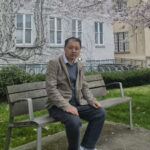 |
Professor Yu ZHANG is a professor in Institure of Literary Studies at Shanghai International Studies University. He was a visiting scholar at Harvard University in 2010 and 2015. His publications include a monograph titled Xinxing and Shichan: Essays on Scholars and Buddhism in the Northern Song Dynasty (2012 East China Normal University Press),a Chinese translation of Stephen Teiser’s The Scripture on the Ten Kings:and the Making of Purgatory in Medieval Chinese Buddhism ( 2016 Shanghai Guji Press) and more than 50 articles.
張煜教授目前任職於上海外國語大學文學研究院。他曾於2010年與2015年在哈佛大學訪學。他的學術興趣主要在佛教文學與中國古典詩。他目前(2024年)訪學加拿大英屬哥倫比亞大學,從事“本生、地獄與志怪文學“的研究。他的研究成果包括專著《心性與詩禪:北宋文人與佛教論稿》(華東師範大學出版社,2012)、譯著太史文《《十王經》與中國中世紀佛教冥界的形成》(上海古籍出版社,2016)以及論文五十餘篇。 |
| 47 | ZHAO Qingshan, Lanzhou University 趙青山, 蘭州大學 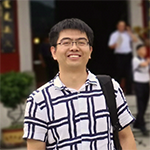 |
Zhao Qingshan, Phd of History, professor of Institute of Dunhuang Studies of Lanzhou University, mainly studying Dunhuang studies and Buddhism history. The recent research topics are the following two: Buddhist apocryphal sutras and Buddhist funeral activities. He has published a monograph entitled the History of Copying Sutras in Dunhuang from the 6-10th Century, and published more than 40 papers, such as “The Establishment of the Institutional and Format for Copying Buddhist Scriptures and its Significance” and “The Buddhist Influence on Chinese Culture as seen in the Conception of ‘Seven -Generations Parents'”.
趙青山,歷史學博士,蘭州大學敦煌學研究所教授,主要從事敦煌學和佛教史研究。近期研究課題為佛教疑偽經和佛教喪葬活動研究兩個方面。出版專著《6-10世紀敦煌地區抄經史》,發表論文《佛經抄寫制式的確立及其意義》《從敦煌寫經題記所記“七世父母”觀看佛教文化對中土文化的影響》等40余篇。 |
| 48 | ZHAO Wen, Nankai University 趙文, 南開大學 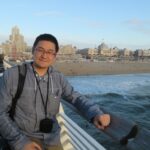 |
趙文,南開大學哲學院宗教學教研室副教授,2018年博士畢業於德國慕尼黑大學佛教研究項目(Doctoral Program in Buddhist Studies)。曾在牛津大學東方學系(2015)、紐倫堡大學人文研究院(2019)訪學。近年來的研究重點包括:《般若經》文獻與思想、絲綢之路禪修、中國宗教文化,等等,並在Journal of the International Association of Buddhist Studies,《世界宗教研究》等期刊發表相關研究文章多篇。擔任2019年度何鴻毅家族基金會佛教研究校勘與學術翻譯項目:「庫車出土梵語佛教瑜伽手冊英譯」(An English Translation of a Sanskrit Buddhist ‘Yoga Manual’ from Kučā)項目負責人,現主持國家社科基金項目一項。
Wen Zhao is now the associate professor in the College of Philosophy at Nankai University. He received his PhD in the Doctoral Program in Buddhist Studies at LMU Munich in 2018, studied at Oxford University as a visiting student (2015) and worked at FAU Erlangen-Nürnberg as a visiting fellow (2019). His recent research fields include: the Prajñāpāramitā literature and relevant thoughts, the meditation along the Silk Road, the Chinese religious thoughts and cultures, etc. Some articles related to these topics are published in Journal of the International Association of Buddhist Studies, Shijie Zongjiao Yanjiu (世界宗教研究) etc. He was also the sponsor of the program “An English Translation of a Sanskrit Buddhist ‘Yoga Manual’ from Kučā” supported by the Robert Ho Family Foundation Translation Grants (2019), and now he is responsible for one research program granted by the Chinese National Social Science Fund. |
| 49 | ZHOU Liqun, Beijing Foreign Studies University 周利群, 北京外國語大學 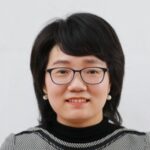 |
Dr. ZHOU Liqun an associate professor in Sanskrit and Pali at Beijing Foreign Studies University. She has published one monography and a dozen of articles on the history of astronomy and Buddhist literature. She visited the Needham Research Institute in Cambridge (in 2017-18) as the Li Foundation of New York fellow for one year. She organized online and offline conferences and lectures every year. For the future years, she serves Commission of History of Ancient and Medieval Astronomy (CHAMA) and Indian Literature Councils as councilor.
周利群,北京外國語大學亞洲學院梵語巴利語教研室副教授,研究方向為中印文化交流、佛教文獻學、天文學史等。代表作有專著《<虎耳譬喻經>文本與研究——中印間早期天文、曆法和文學的交流》,論文《變與不變:早期漢傳佛教文獻的天文學翻譯》等。主持2018年國家社科基金冷門「絕學」和國別史等研究專項基金項目「梵藏漢文佛經中的時間測量文獻整理與研究」,參與國家社科重大課題若干,結項教育部項目與校級項目若干。在國內外學術會議上報告二十多次,訪問印度、日本、英國知名學術機構五次。2017-2020,北京外國語大學卓越青年教師;2017-2018年,獲紐約李氏基金在英國劍橋李約瑟研究所訪學。2021年入選國際古代與中世天文史委員會(CHAMA)理事,中國印度文學研究會理事。 |
| 50 | ZONG Yanhong, International College for Postgraduate Buddhist Studies 宗艷紅, 國際佛教學大學院大學 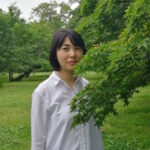 |
宗艷紅,日本國際佛教學大學院大學博士生。專攻北宋佛教史,主要研究北宋雲門宗祖師惟白及其代表作《大藏經綱目指要錄》和《建中靖國續燈錄》等。已用日文發表過《佛國惟白の報恩思想——<大藏經綱目指要録>を手掛かりとして》、《北宋佛國惟白の思想研究——“禅教五派宗源述”を手掛かりとして》、《佛國禪師惟白の傳記とその問題点——出身地を例として》、《北宋佛國禪師惟白の五恩説について》等多篇論文。 |







